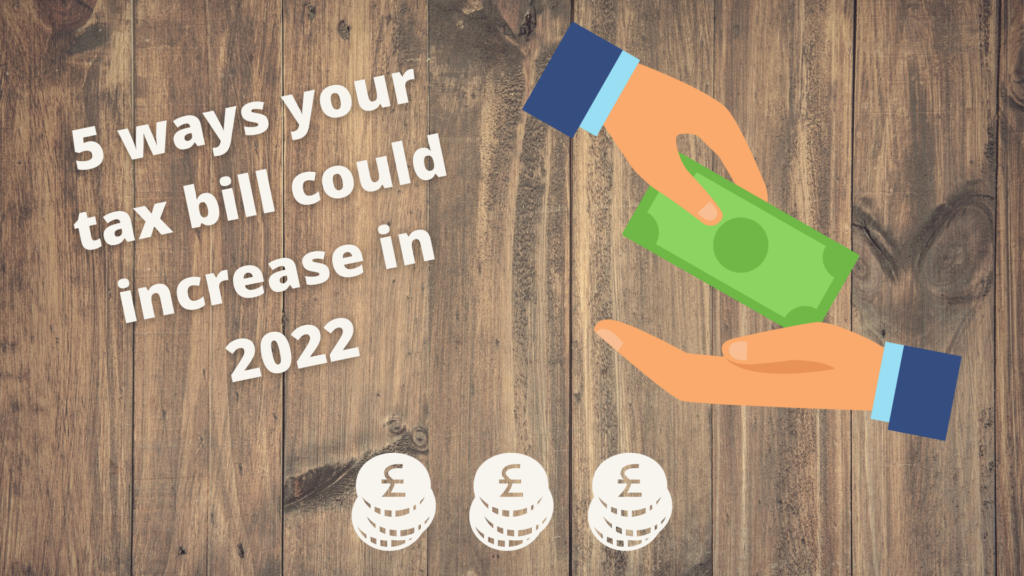Most British taxpayers will see their tax bills rise in the coming tax year, as measures announced in the 2021 autumn budget come into play.

Here’s a quick rundown of the changes that could affect you.
1. National Insurance rates
On April 6 2022, National Insurance rates will rise by 1.25% points under the government’s new health and social care levy. The stated aim for this rise is to improve social care nationwide.
This April, the additional rate will be taken as part of your National Insurance payment, but from April 2023 it will be charged as a separate levy.
Minimum earnings limits will go up by 3.1% in line with inflation, while the higher rate threshold remains £50,270.
What this means in practice is:
- Employees earning less than £9,880 will not pay NIC.
- Employees earning £9,880 to £50,270 will pay Class 1 rates at 13.25%
- Employees earning more than £50,270 will pay class 1 rates at 3.25%
If you’re self-employed, you may pay Class 2 and 4 contributions depending on your earnings. From April these rates will be:
- Zero if you earn less than £6,725
- £3.15 per week if you earn between £6,725 and £9,880
- 10.25% plus £3.15 per week if you earn between £9,880 and £50,270
- 3.25% plus £3.15 per week if you earn more than £50,270
2. Higher dividend tax
If you earn money via dividends, you will be charged 1.25% more on this income from April. The rate you will pay depends on your income tax band. Basic rate taxpayers will be taxed on dividends at 8.75%; higher rate taxpayers at 33.75% and additional rate taxpayers at 39.35%.
There is a minimum threshold for this tax of £2,000. You won’t pay dividend tax on investments held in a stocks and shares ISA.
3. Car tax increases
Car tax (vehicle excise duty) will also increase from April 1 2022. The amount you will pay depends on the emission levels of your car.
If you have a zero-emission vehicle such as an electric car, the tax remains zero. Generally, other car owners will see their tax increase by up to £10 per year.
4. Fiscal Freeze
The 2021 budget placed a freeze on a number of rates and reliefs including personal tax thresholds, pensions allowances and the exemption for Capital Gains Tax. These rates are expected to remain static until 2026.
There is some concern that the current rapid rate of inflation could have significantly effects as a result, potentially pushing people into higher tax brackets and increasing the amount they need to pay to the government.
5. Capital Gains Tax extension
New rules also affect anyone who makes a capital gain after selling a property. There was previously a window of just 30 days for taxpayers to report the sale and pay the tax owed. At the Budget on 27 October 2021 this was immediately increased to 60 days.
This means anyone who makes a capital gain after selling a second home or buy-to-let property has 60 days to submit a residential property return to HMRC and pay the estimated tax owed.
We’re here to help both businesses and individuals navigate their tax responsibilities. Contact us to discuss what the NIC increase will mean for you personally and for your company. As Business Accountants we offer payroll services, personal and business tax planning in the Lune Valley and Lancashire – we would be pleased to advise you.

